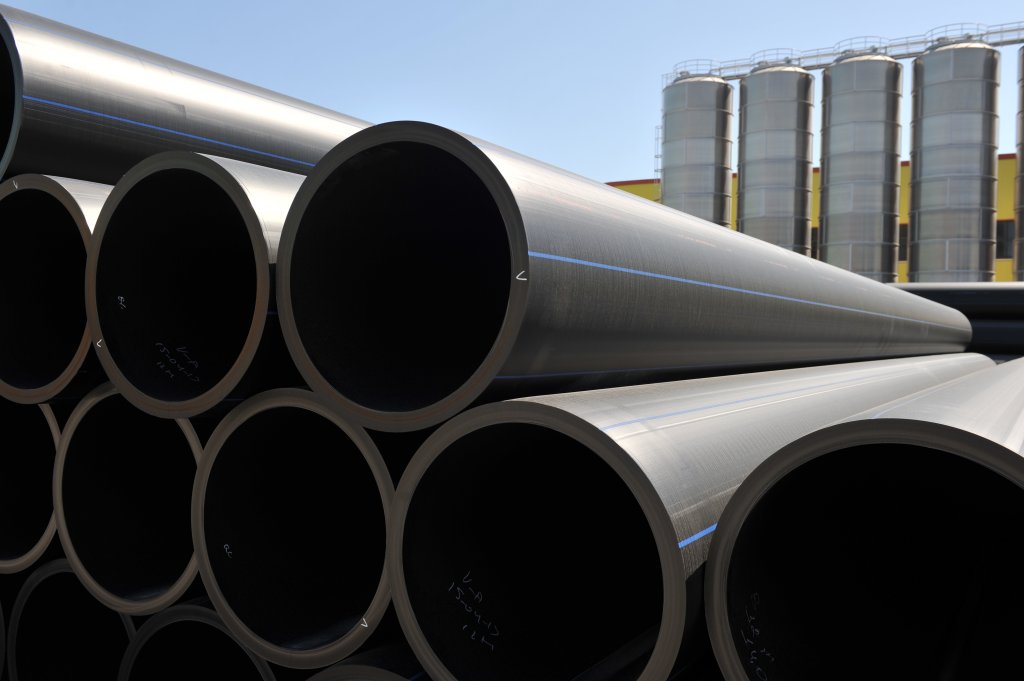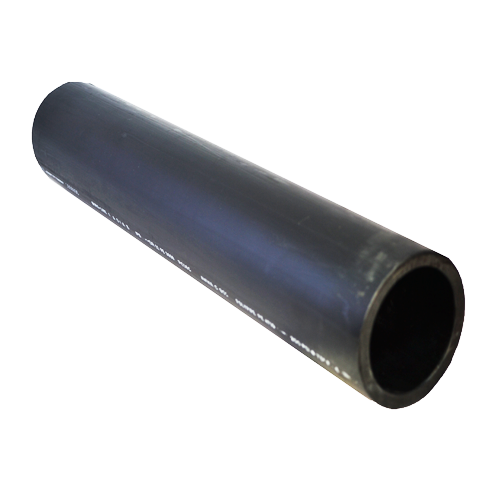Comprehending the Trick Perks of HDPE Pipe for Water and Wastewater Administration
Making use of HDPE pipeline in water and wastewater management offers countless benefits that merit consideration. Its extraordinary durability and long lifespan make it a preferred choice for numerous projects. In addition, the product's resistance to corrosion and chemical damage boosts its dependability in various atmospheres. The benefits prolong past just durability and resistance. hdpe pipe fittings Midland TX. Discovering its cost-effectiveness and ecological impact exposes much more engaging factors for its widespread adoption in contemporary framework
Phenomenal Resilience and Durability

HDPE pipe stands out for its extraordinary resilience and longevity, making it a favored selection in water management systems. Built from high-density polyethylene, these pipelines can endure considerable stress and anxiety, making sure reputable efficiency gradually. Their durable nature enables them to sustain severe ecological problems, consisting of temperature level variations and dirt activities, which can create various other products to stop working.
The lifespan of HDPE pipes commonly goes beyond half a century, giving an affordable service for municipalities and sectors alike. In addition, the material's lightweight residential properties simplify installation, reducing labor prices and timeframes. This resilience decreases the requirement for regular repair work or replacements, better boosting its financial appeal.
In water administration applications, the reliability of HDPE pipes indicates less disruptions and improved solution connection, making them indispensable to sustainable facilities development. The combination of sturdiness and long life strengthens HDPE's duty as a keystone in reliable water monitoring remedies.

Resistance to Deterioration and Chemical Damage
While many materials succumb to deterioration and chemical damages with time, HDPE pipelines display exceptional resistance, making them suitable for numerous water administration applications. This strength stems from the molecular structure of high-density polyethylene, which is naturally non-reactive and does not corrode like metals or deteriorate from direct exposure to severe chemicals. Consequently, HDPE is extremely effective in environments with hostile compounds, such as wastewater systems that might include acids, bases, and natural solvents.
Additionally, HDPE pipelines can endure ecological elements such as dirt acidity and saline problems, further improving their viability for diverse applications (Pipe Supplier American Plastics Midland). Their ability to preserve structural honesty gradually decreases the risk of leakages and failings, which is important in making sure the safety and integrity of water distribution and wastewater administration systems. Subsequently, the resistance to deterioration and chemical damage significantly contributes to the total efficiency and longevity of HDPE piping services
Cost-Effectiveness and Financial Benefits
When taking into consideration the financial ramifications of water monitoring systems, the cost-effectiveness of HDPE pipes ends up being noticeable. These pipes provide reduced installation and maintenance expenses contrasted to traditional materials like steel or concrete. Their light-weight nature simplifies transportation and installment, causing lowered labor expenditures. In addition, HDPE pipelines display a long lifespan, typically surpassing 50 years, which translates to fewer substitutes and lasting financial savings.
The resistance of HDPE to deterioration and chemical damages minimizes the need for costly fixings and substitutes. The pipelines additionally support effective water circulation, lowering energy prices connected with pumping systems. By alleviating leakages and water loss, HDPE pipelines contribute to considerable financial advantages for communities and industries alike. Overall, the preliminary financial investment in HDPE piping can produce considerable financial returns over the lifespan of the water administration system, making it a prudent choice for lasting facilities advancement.
Ecological Sustainability and Decreased Impact

Convenience and Adaptability in Installment
As a result of their distinct homes, HDPE pipes provide exceptional adaptability and flexibility in setup, making them ideal for a variety of applications. Their lightweight nature permits easier handling and transport, lowering labor expenses and installment time. HDPE pipelines can be curved and shaped to fit numerous terrains and task requirements, which is especially beneficial in challenging environments.
Furthermore, their resistance to corrosion and chemical damage permits installment in diverse settings without the demand for specialized protective coatings. The capability to fuse joints develops a constant, leak-free system, boosting the overall honesty and reliability of the setup. HDPE's adaptability also suits ground activity, lowering the threat of damage in locations susceptible to shifting soil. In general, these attributes make HDPE pipelines not only versatile but also a recommended choice for water and wastewater monitoring systems.
Frequently Asked Inquiries
How Does HDPE Pipe Contrast to PVC in Water Monitoring Applications?
HDPE pipeline provides remarkable versatility, resistance to rust, and toughness contrasted to PVC. Its lighter weight promotes less complicated installment, while its lengthy life expectancy decreases replacement costs, making HDPE a preferred choice in water management applications.
What Is the Life-span of HDPE Piping Under Normal Conditions?
Under typical problems, HDPE pipelines can have a life additional hints expectancy ranging from 50 to 100 years. Their resilience and resistance to corrosion add to their long-lasting performance in various applications, making them a trustworthy option for infrastructure.
Are HDPE Piping Recyclable After Their Life Span?
Yes, HDPE pipes are recyclable after their service life. Texas hdpe pipe manufacturer. They can be refined and repurposed into brand-new items, considerably decreasing ecological influence and promoting sustainability within the sector, making them a green option for piping solutions
What Is the Installment Process for HDPE Pipes?
The setup process for HDPE pipelines entails site prep work, trenching, pipeline fusion or mechanical signing up with, backfilling, and pressure screening. Appropriate strategies ensure a durable and reliable system for carrying water and wastewater efficiently.
Can HDPE Pipes Be Made Use Of for Both Drinkable and Non-Potable Water Systems?
Yes, HDPE pipelines can be made use of for both drinkable and non-potable water supply. Their adaptability, sturdiness, and resistance to deterioration make them ideal for different applications, guaranteeing risk-free and efficient transportation of water in different contexts.